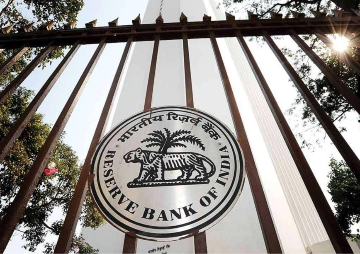A closed-door workshop and a public conference on ‘Prospects for EU-IndiaSecurity Cooperation’ was organised by the Observer Research Foundation, in collaboration with theEuropean Union Institute for Security Studies, and Chatham House – The Royal Institute of International Affairs, on 26 September, 2016, in Delhi. These gatherings provided an opportunity toexchange views on theEU-India collaboration in three areas of common concern: radicalisation and terrorism; West Asia (the Middle East); and maritime security.
Radicalisation and terrorism
Both the EU and India havesuffered terrorist attacks in recent years. For the EU, Islamic militancy is a relatively new phenomenon.Originally viewed from a foreign policy perspective, it has recently transformed into an internal problem for Europe. Moreover, the EU does not have exclusive competence on security-relatedmatters. Consequently, there is no uniform counter-radicalisation/terrorism formula across the EU Member States, and instead every programme for countering violent extremism (CVE) is tailored to country-specific implementation. In addition, the intra-Member States cooperation is rather limited in scope, in particular when it comes to sharingintelligence. Nevertheless, there is a common trend among European countries of moving away from the socio-economic approach to counter radicalisation (constructing counter-narrative based on religious arguments and engaging with religious leaders)towards a morelaw-enforcement approach. At the same time, India,with its 180 million strongMuslim population, has a remarkably few people joining the Islamic State (IS). Recognising obvious differences between Indian Muslim and European Muslim communities, the discussants agreed that a better understanding of the situation in India could offer potential lessons for the EU. Recognising that various communities, both in India and the EU, which suffer from the negative effects of socio-economic changes are most vulnerable to radicalisation, it was stressed that the governments need to work towards more elaborated policies to engage with these groups. Finally, given that most instances of terrorism in India are linked to Pakistan, it was noted that a stronger EU-India engagement on terrorism would require addressing the role of Islamabad and the situation in Kashmir.
The discussion outlined the potential of the EU-India counter-terrorism cooperation in the following areas:
- Radicalisation-a comparative study on radicalisation and CVE processes;
- Functional cooperation- common situational awareness and identification of terrorist groups, coordinated measuresaimed at preventingthe financing of terrorists, movement of leaders etc.;
- Exchange of best practices and intelligence sharing –While recognisingthe EU’s difficulties in the sharing of personal data,possible venues for cooperation in this field could include setting up common data systems in restricted access or sharing data though third partners;
- Cooperation onsmart cities.
< style="color: #163449;">West Asia/Middle East
West Asia/Middle East has historically been a bridge connecting Europe with Asia. As their shared periphery, all developments which take place in the region severely affectboth the EU and India.The discussants indicated that both the EU and India constitute rather weak powers in the region, essentially equipped only with diplomatic and economic tools.India’s approach to the region is influencedby its dependence on the energy resources from the oil-rich countries, as well as its large diaspora working in West Asia, accounting for a significant share of remittance flows to India. TheEU does not have a comprehensive policy towards the Middle East,despite being affected by the immigration crisis, which raises economic, security, political and social concerns. The EU’s previous developmental approach has been based on the assumption that economic development guarantees stability, good governance, security and eventually democracy – such a policy has not delivered the intended outcomes. Also, the European states are to a lesser extent dependent on energy supplies from the region. The EU’s involvement in West Asia is, thus, primarily driven by some of the EU Member States which havespecific interests in the region.
Discussed avenues for future cooperation include:
- Institutionalised bilateral dialogue to deepen understanding of each other’s approach towards the region;
- Common energy infrastructure projects;
- Coordinated engagement in Afghanistan, where both the EU and India have similar objectives;
- Peacekeeping;
- Third party negotiations/mediations, e.g. between Saudi Arabia and Iran;
- Counter-terrorism coordination.
< style="color: #163449;">Maritime security
The participants of the workshop agreed there is significant potential forEU-India cooperation in the realm of maritime security. The discussion outlined major security challenges in the maritime domain, including transnational crimes carried out on the seas, piracy, terrorism, illegal unreported fishing, national disasters and climate change. The EU and India have recently adopted their respective maritime security strategies whichindicate converging interests on both sides. The Indian Ocean constitutes an important area for both partners. Striving to play a security provider role in the neighbourhood, India is increasing its presence in the Indian Ocean. Simultaneously, the EU has significant economic interests in the region,with its major sea lines of communication located in the Indian Ocean.The EU adopted a comprehensive approach to the region,encompassing diplomatic, policy, strategic and activity level. The EU engagement in the Indian Ocean includesOperationAtlanta, EUCAP Nestor, the financing of the Indian Ocean Commission and EU-CRIMARIO project intended to improve maritime security in the entire region. The discussants notedthat the EU activities are primarily focused on the West Indian Ocean region (Horn of Africa), while it has a limited presence in the Bay of Bengal and South Asia. Finally, the participants agreed that the bilateral cooperation in the maritime space would also requireexamining Chinese activities in the Indian Ocean. Building on existing India-US cooperation, it was suggested to explore options for the tripartite dialogue between EU-India-US on the Indian Ocean.
The identified areas of potentialcooperation include:
- Track1 dialogue on maritime security;
- Navy dialogue and joint maritime operations, e.g. joint patrols in the Bay of Bengal and evacuation exercises;
- Legal cooperation aimed at establishing a comprehensive governance regime for the Indian Ocean;
- Technology (including for search and rescue missions)
- Scientific research on maritime resources;
- Blue growth
The workshop and the conferencewereorganised under the EU Public Diplomacy and Outreach in India and SAARC: EU-India Think Tanks Twinning Initiative.This initiative brings together think-tanks from the EU and India to collaborate and provide alternative ideas for the bilateral relationship. The findings of the workshop are intended to be further translated into policy recommendations, ultimately aimed at rejuvenating the EU-India Strategic Partnership, which was established in 2004.
The views expressed above belong to the author(s). ORF research and analyses now available on Telegram! Click here to access our curated content — blogs, longforms and interviews.




 PREV
PREV

